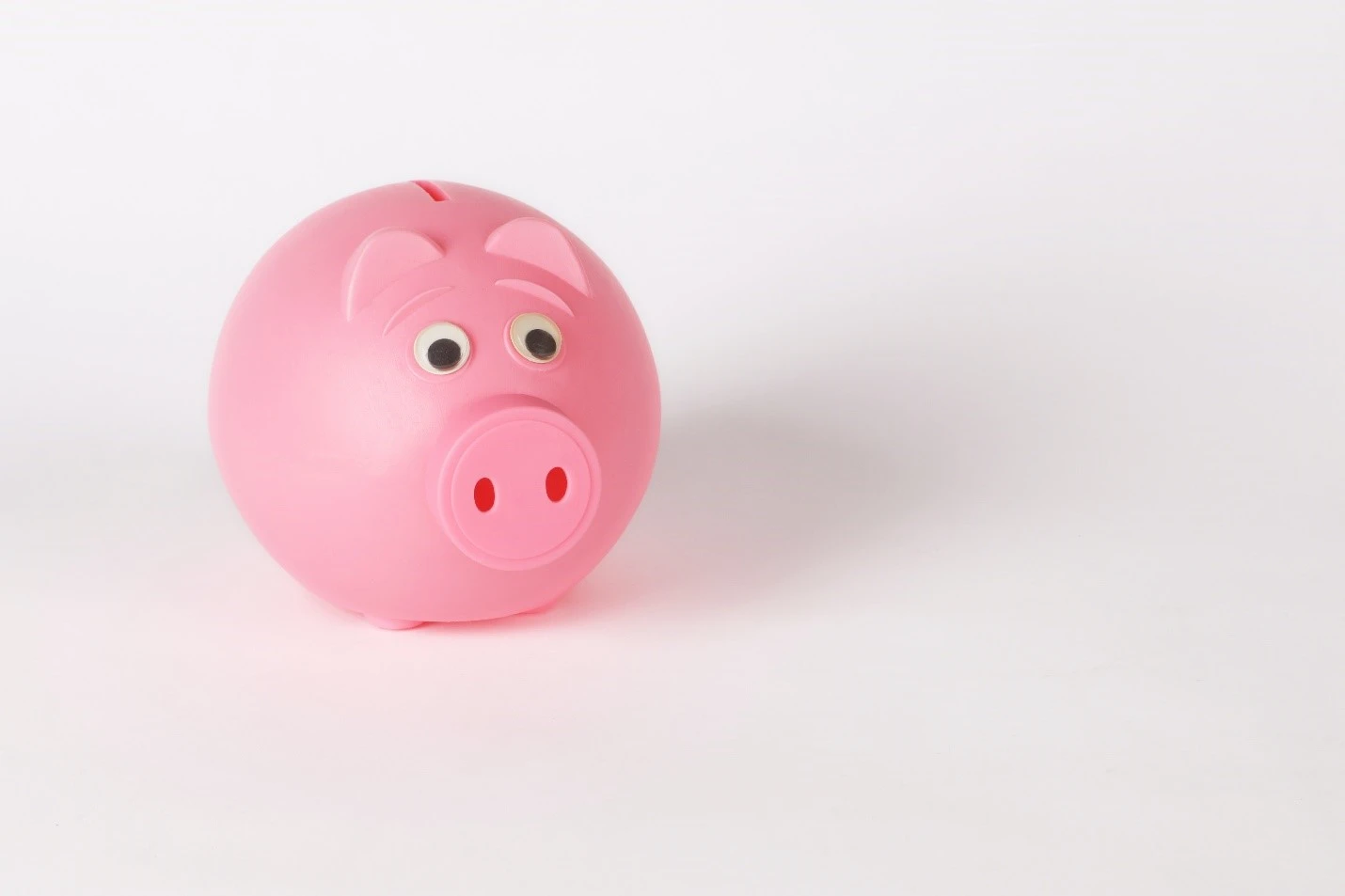Categories

Start with a Financial Safety Net
Before we dive into some of the things you can do to help you pay off your loan, it’s important that we focus on what you can do to prevent the need for a loan in the first place. This will apply more so to helping with smaller emergency expenses versus large purchases, like for a home or car. One of the best things you can do to safeguard against future emergencies is to start building an emergency fund. The purpose of this fund is to act as a barrier between your everyday cash and any emergency expense that might come your way. So, instead of having to apply for a personal loan to help you deal with an emergency, you can tap into your emergency fund instead. Even if you can’t cover the entire cost of the emergency with your savings, it can still help you to avoid having to take on debt. It’s important to remember that you’re going to want to make sure your emergency fund money is separate from your everyday spending money, and even separate from your other savings. While you want this money to be accessible, you don’t want to be tempted to use it on anything other than an emergency expense.
Do your best to contribute what you can on a regular basis. You’re not going to build a fully stocked emergency fund overnight, so just try to play the long game as much as you can. Try to get a sense of how much money you can contribute to it by taking a hard look at your budget and figuring out if you have any spare cash lying around at the end of the month. If you do, put it to good use!
It’s important to remember that you’re going to want to make sure your emergency fund money is separate from your everyday spending money, and even separate from your other savings. While you want this money to be accessible, you don’t want to be tempted to use it on anything other than an emergency expense.
Do your best to contribute what you can on a regular basis. You’re not going to build a fully stocked emergency fund overnight, so just try to play the long game as much as you can. Try to get a sense of how much money you can contribute to it by taking a hard look at your budget and figuring out if you have any spare cash lying around at the end of the month. If you do, put it to good use!
How to Pay Off a Loan – 4 Tips
If you’re stuck without an emergency fund and need some extra funds, then it’s at this point that you might start to think about applying for a personal loan. If you end up accepting a loan offer, here are some tips that may be able to help you out during the repayment phase.1. Make your Loan Payments a part of your Budget
The first thing you should do before you accept or even apply for a loan in the first place is to take a close look at your budget and figure out if you can afford to repay your loan. If the loan you’re looking at has the important loan details visible on the company’s site, plug these numbers into a loan payment calculator to see what it’ll cost you. Figuring out how to work loan payments into your budget amongst all your other usual expenses can be easier said than done. If the math isn’t adding up and you don’t think you’ll have room for everything, have a close look at your spending and try to find some things you can cut back on. While the specifics of a budget and where money needs to be spent is going to be different for everyone, doing a complete audit of where your money goes is a great way to gain insights into some of the less productive ways that you’ve been using your cash. Like we said, everyone’s budget is going to be different, but where do you start if you’re looking to cut back on spending? Well, the first thing to do is to list out all the non-essential things that occupy your budget. This could be things like:- Multiple streaming subscriptions. If you’re paying for multiple, cut back to one.
- Opt for eating in more often.
- Movie tickets.
- Non-essential trips to the mall.
2. Pay Extra if There’s No Penalty
If you’ve gone through the exercise of looking through your budget and cutting back in certain areas, you may have actually been left with a little more wiggle room than you thought you’d be able to make! So, if you have a bit of extra money to play around with, use it wisely. Making some extra contributions to your emergency fund would be a good start. Another thing you might want to consider before that is to make extra payments on your current personal loan that you’re in the process of repaying. By doing this, you may be able to lower the total amount of interest that you’ll have to pay over the entire duration of the repayment phase.
While this can be a good idea in some cases, in others, it may end up costing you more than you’re already scheduled to pay. Why? Well, some lenders may not want you to pay off your personal loan early in order to maximize the amount of interest that you’ll have to pay, so they impose an early repayment penalty. So, with this in mind, it’s important to check to see if this penalty will come into play with your loan, and if it does, weigh the cost of early repayment against what you’ll be saving on interest in the long run.
Making some extra contributions to your emergency fund would be a good start. Another thing you might want to consider before that is to make extra payments on your current personal loan that you’re in the process of repaying. By doing this, you may be able to lower the total amount of interest that you’ll have to pay over the entire duration of the repayment phase.
While this can be a good idea in some cases, in others, it may end up costing you more than you’re already scheduled to pay. Why? Well, some lenders may not want you to pay off your personal loan early in order to maximize the amount of interest that you’ll have to pay, so they impose an early repayment penalty. So, with this in mind, it’s important to check to see if this penalty will come into play with your loan, and if it does, weigh the cost of early repayment against what you’ll be saving on interest in the long run.
3. Exceed the Minimum Payment
If you have a credit card or a line of credit, you should be familiar with what a minimum payment is. It’s essentially the minimum amount of money you are required to pay on a revolving credit account in order to make sure your account remains in good standing. Making a minimum payment might be easier instead of making the full payment if money is a little tight, but you’ll want to make sure you don’t fall into the trap of only making your minimum payment because you’d rather spend that money on a fun night out or a new computer. If you decide to make just your minimum payment, whatever you don’t pay back is going to extend to your next billing cycle and you may end up paying more interest on that personal loan in the end. On top of this, you simply won’t be paying off as much debt as you can, which isn’t a great idea if you can afford to pay more. So, pay off as much of your loan as you can and get that debt off your plate!4. Don’t Pay Off One Personal Loan with Another
If you check your calendar and see that you have a loan payment coming and don’t think you’ll have enough money to pay it in full, what do you do? Well, we can tell you that generally, it’s not time to panic and apply for another personal loan to handle the first one. If you know of anyone who’s done this, it’s possible that they’ve applied for a debt consolidation loan. These loans help people to refinance the debt they currently have and bundle multiple high-interest debts under one umbrella. This umbrella takes the form of a debt consolidation loan. In general, you’re paying off multiple high-interest loans with a single low-interest loan. While there are certain instances where this can be useful, if you find yourself applying for a loan every time you need to pay off an older loan, you’re not really getting to the crux of your issue. All you’ll be doing is taking debt that you’re currently dealing with and displacing it somewhere else.
In these situations, your main focus should be to work on your spending habits and incorporate healthy financial practices into your everyday life.
While there are certain instances where this can be useful, if you find yourself applying for a loan every time you need to pay off an older loan, you’re not really getting to the crux of your issue. All you’ll be doing is taking debt that you’re currently dealing with and displacing it somewhere else.
In these situations, your main focus should be to work on your spending habits and incorporate healthy financial practices into your everyday life.
Borrow Responsibly
Whatever direction you go in when it comes to taking on debt, your experience is going to be specific to you. The key is to find some sense of balance over the course of the borrowing process. This is definitely going to include the repayment process. The tips that we’ve gone over in this article can hopefully give you a hand, but you’ll need to find what works for your personal situation. Remember to be diligent, research your borrowing options thoroughly, and approach the borrowing experience responsibly!Disclaimer: This page provides general information only and does not constitute financial, legal or other professional advice. For full details, see Fora’s Terms of Use.



